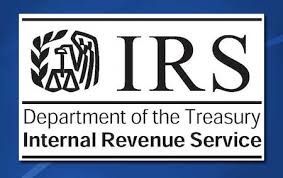
Consumers are applying and enrolling in quality, affordable health coverage every day using HealthCare.gov and State-based Marketplaces around the country. More than 3 million have enrolled so far, and we hope millions more will do so by March 31, the end of open enrollment.
From Saturday February 15, 2014 at 3:00PM until Tuesday, February 18, 2014 at 5:00AM EST, the Social Security Administration will conduct required, regularly scheduled systems maintenance activities over the three day weekend. During this period, verification of Social Security Numbers and other related data via the Data Services Hub will be unavailable. All other services of the Hub will be functioning as normal.
What this means for you:
If you have already completed your application and know what you qualify for: This doesn’t affect you — you can continue shopping and pick a plan to finish your enrollment.
If you want coverage effective March 1, 2014: You generally need to sign up by February 15. But, because of the maintenance window, you won’t be able to find out what you qualify for if you apply after 3pm that day. If you aren’t able to complete your enrollment online by February 15, call us at 1-800-318-2596 starting on February 18 to request coverage beginning on March 1. We will work with you to get you covered.
If you want coverage with a later effective date: You can complete your application during this time but won’t be able to find out what you qualify for during the maintenance period. When you complete your application, you’ll need to save it and return to HealthCare.gov on or after February 18 to find out what you qualify for, pick a plan, and complete your enrollment.
Remember, you have until March 31 to sign up for new coverage during this year’s open enrollment period.
https://www.healthcare.gov/blog/cancelled-plan-you-ve-got-coverage-options/
 Mileage Deduction Rates
Mileage Deduction Rates
 Affordable Care Act has provisions for individuals who need to purchase Health Care.
Affordable Care Act has provisions for individuals who need to purchase Health Care.
 Federal changed the allowable medical and dental expense deduction amount for federal purposes. A deduction is allowed for unreimbursed allowable medical and dental expenses that exceed 10 percent of federal adjusted gross income (AGI) California allows a deduction for medical and dental expenses that exceed 7.5 percent of federal AGI. For more information, go to
Federal changed the allowable medical and dental expense deduction amount for federal purposes. A deduction is allowed for unreimbursed allowable medical and dental expenses that exceed 10 percent of federal adjusted gross income (AGI) California allows a deduction for medical and dental expenses that exceed 7.5 percent of federal AGI. For more information, go to  The Affordable Care Act requires employers to report the cost of coverage under an employer-sponsored group health plan on an employee’s Form W-2, Wage and Tax Statement, in Box 12, using Code DD. Many employers are eligible for transition relief for tax-year 2012 and beyond, until the IRS issues final guidance for this reporting requirement.
The Affordable Care Act requires employers to report the cost of coverage under an employer-sponsored group health plan on an employee’s Form W-2, Wage and Tax Statement, in Box 12, using Code DD. Many employers are eligible for transition relief for tax-year 2012 and beyond, until the IRS issues final guidance for this reporting requirement. IF YOU WANT TO GET CREDIT FOR CHILD and DEPENDENT CARE, THE IRS NEEDS TO KNOW…
IF YOU WANT TO GET CREDIT FOR CHILD and DEPENDENT CARE, THE IRS NEEDS TO KNOW…  Questions and Answers: 2013 Changes to the Itemized Deduction for Medical Expenses
Questions and Answers: 2013 Changes to the Itemized Deduction for Medical Expenses